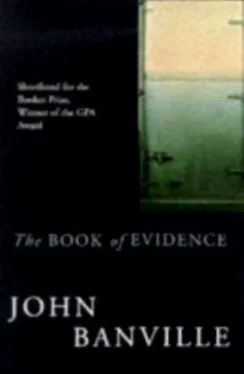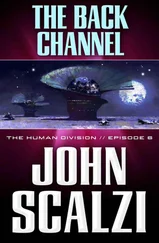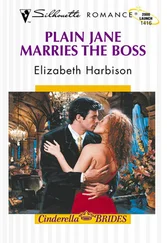I waited. All was silent save for the ticking of a tall, seventeenth-century German clock. On the wall beside me there was a set of six exquisite little Bonington water-colours, I could have put a couple of them under my arm there and then and walked out. The clock took a laboured breath and pinged the half-hour, and then, all about me, in farther and farther rooms, other clocks too let fall their single, silvery chimes, and it was as if a tiny tremor had passed through the house. I looked again at the Tintoretto. There was a Fragonard, too, and a Watteau. And this was only the hallway. What was going on, what had happened, that it was all left unattended like this? I heard the taximan outside sounding his horn, a tentative, apologetic little toot. He must have thought I had forgotten about him. (I had.) Somewhere at the back of the house a door banged shut, and a second later a breath of cool air brushed past my face. I advanced creakingly along the hall, a hot, almost sensuous thrill of apprehensiveness pulsing behind my breastbone. I am at heart a timid man, large deserted places make me nervous. One of the figures in the Fragonard, a silken lady with blue eyes and a plump lower lip, was watching me sidelong with what seemed an expression of appalled but lively speculation. Cautiously I opened a door. The fat knob turned under my hand with a wonderful, confiding smoothness. I entered a long, high, narrow, many-windowed room. The wallpaper was the colour of tarnished gold. The air was golden too, suffused with the heavy soft light of evening. I felt as if I had stepped straight into the eighteenth century. The furnishings were sparse, there were no more than five or six pieces – some delicate, lyre-backed chairs, an ornate sideboard, a small ormolu table – placed just so, in such a way that not the things but the space around them, the light itself, seemed arranged. I stood quite still, listening, I did not know for what. On the low table there was a large and complicated jigsaw puzzle, half-assembled. Some of the pieces had fallen to the floor. I gazed at them, sprinkled on the parquet like puddles of something that had spilled, and once again a faint shiver seemed to pass through the house. At the far end of the room a french window stood wide-open, and a gauze curtain billowed in the breeze. Outside there was a long slope of lawn, whereon, in the middle distance, a lone, heraldic horse was prancing. Farther off was the river bend, the water whitening in the shallows, and beyond that there were trees, and then vague mountains, and then the limitless, gilded blue of summer. It struck me that the perspective of this scene was wrong somehow. Things seemed not to recede as they should, but to be arrayed before me – the furniture, the open window, the lawn and river and far-off mountains – as if they were not being looked at but were themselves looking, intent upon a vanishing-point here, inside the room. I turned then, and saw myself turning as I turned, as I seem to myself to be turning still, as I sometimes imagine I shall be turning always, as if this might be my punishment, my damnation, just this breathless, blurred, eternal turning towards her.
You have seen the picture in the papers, you know what she looks like. A youngish woman in a black dress with a broad white collar, standing with her hands folded in front of her, one gloved, the other hidden except for the fingers, which are flexed, ringless. She is wearing something on her head, a cap or clasp of some sort, which holds her hair drawn tightly back from her brow. Her prominent black eyes have a faintly oriental slant. The nose is large, the lips full. She is not beautiful. In her right hand she holds a folded fan, or it might be a book. She is standing in what I take to be the lighted doorway of a room. Part of a couch can be seen, or maybe a bed, with a brocade cover. The darkness behind her is dense and yet mysteriously weightless. Her gaze is calm, inexpectant, though there is a trace of challenge, of hostility, even, in the set of her mouth. She does not want to be here, and yet cannot be elsewhere. The gold brooch that secures the wings of her wide collar is expensive and ugly. All this you have seen, all this you know. Yet I put it to you, gentle connoisseurs of the jury, that even knowing all this you still know nothing, next to nothing. You do not know the fortitude and pathos of her presence. You have not come upon her suddenly in a golden room on a summer eve, as I have. You have not held her in your arms, you have not seen her asprawl in a ditch. You have not – ah no! – you have not killed for her.
I stood there, staring, for what seemed a long time, and gradually a kind of embarrassment took hold of me, a hot, shamefaced awareness of myself, as if somehow I, this soiled sack of flesh, were the one who was being scrutinised, with careful, cold attention. It was not just the woman's painted stare that watched me. Everything in the picture, that brooch, those gloves, the flocculent darkness at her back, every spot on the canvas was an eye fixed on me unblinkingly. I retreated a pace, faintly aghast. The silence was fraying at the edges. I heard cows lowing, a car starting up. I remembered the taxi, and turned to go. A maid was standing in the open french window. She must have come in just then and seen me there and started back in alarm. Her eyes were wide, and one knee was flexed and one hand lifted, as if to ward off a blow. For a moment neither of us stirred. Behind her a sudden breeze burnished the grassy slope. We did not speak. Then slowly, with her hand still raised, she stepped backwards carefully through the window, teetering a little as her heels blindly sought the level of the paved pathway outside. I felt an inexplicable, brief rush of annoyance – a presentiment, perhaps, a stray zephyr sent ahead of the storm that was to come. A telephone was ringing somewhere. I turned quickly and left the room.
There was no one in the hall. The telephone rang and rang, with peevish insistence. I could still hear it going as I descended the front steps. The taxi had left, of course. I swore, and set off down the drive, hobbling over the stony ground in my thin-soled Spanish shoes. The low sun glared in my face. When I looked back at the house the windows were ablaze, and seemed to be laughing fatly in derision. I began to perspire, and that brought on the midges. I asked myself again what had possessed me to come to Whitewater. I knew the answer, of course. It was the smell of money that had attracted me, as the smell of sweat was attracting these damned flies. I saw myself, as if from one of those sunstruck windows, skulking along here in the dust, hot, disgruntled, overweight, head bowed and fat back bent, my white suit rucked at the armpits and sagging in the arse, a figure of fun, the punchline of a bad joke, and at once I was awash with self-pity. Christ! was there no one who would help me? I halted, and cast a troubled glance around me, as if there might be a benefactor lurking among the trees. The silence had a sense of muffled gloating. I plunged on again, and heard the sound of engines, and presently an enormous black limousine came around the bend, followed by a sleek red sportscar. They were going at a stately pace, the limousine bouncing gently on its springs, and for a second I thought it was a funeral. I stepped on to the grass verge but kept on walking. The driver of the limousine, a large, crop-headed man, sat erect and vigilant, his hands lightly cupped on the rim of the steering-wheel, as if it were a projectile he might pluck from its moorings and throw with deadly aim. Beside him there was a stooped, shrunken figure, as the car swished past I glimpsed a dark eye and a liver-spotted skull, and huge hands resting one upon the other on the crook of a stick. A blonde woman wearing dark glasses was driving the sportscar. We gazed at each other with blank interest, like strangers, as she went by. I recognised her, of course.
Читать дальше












